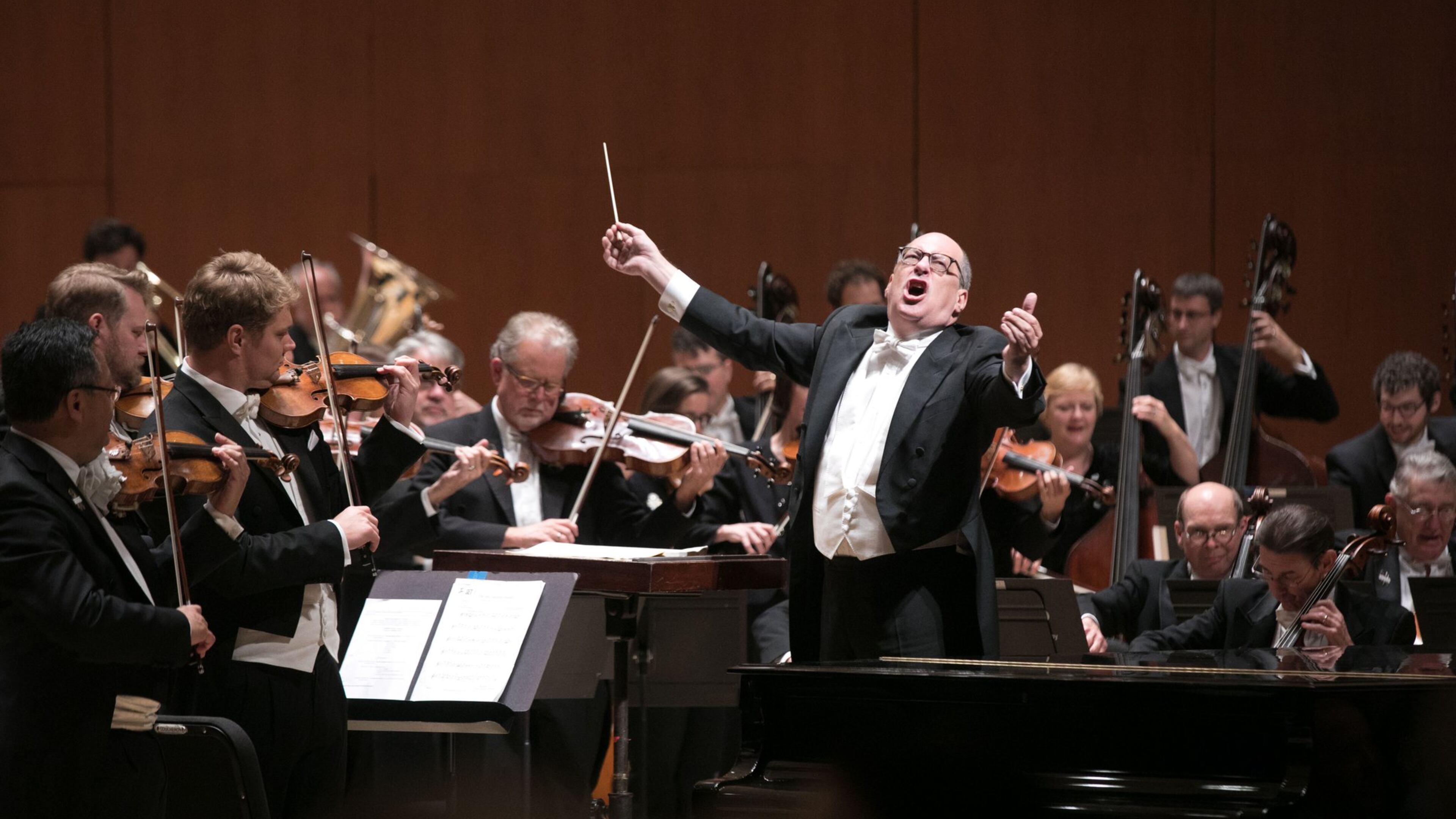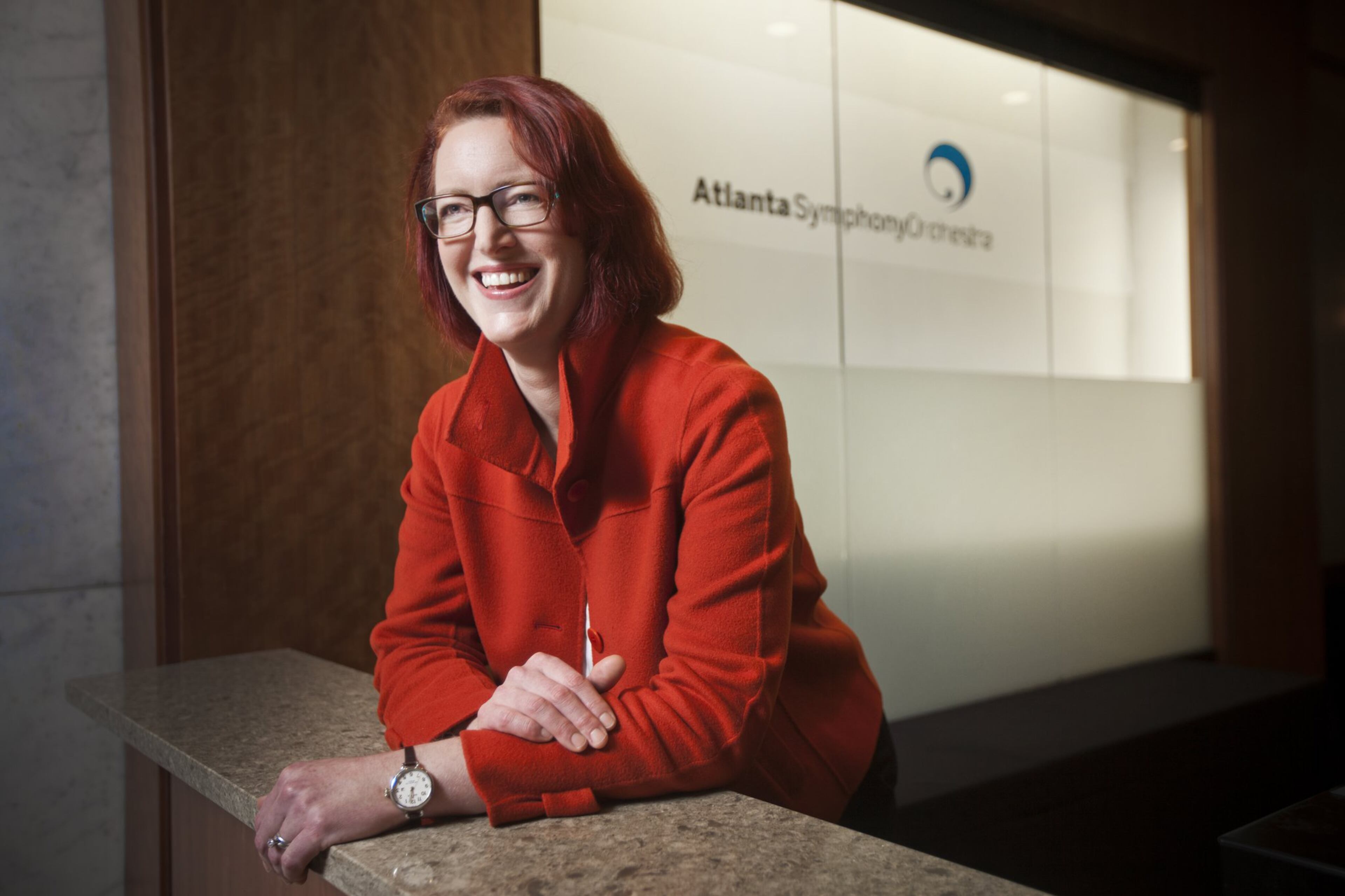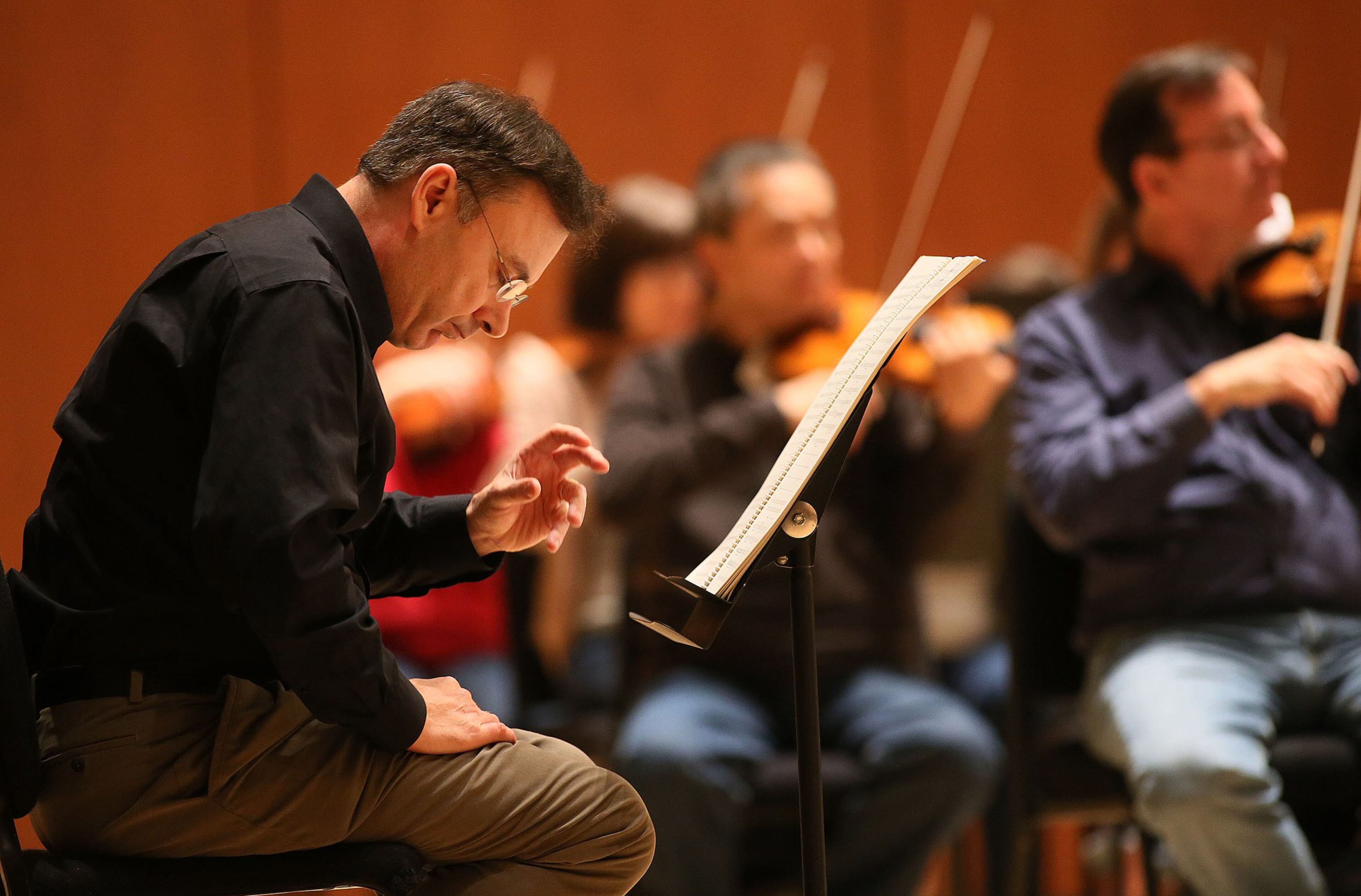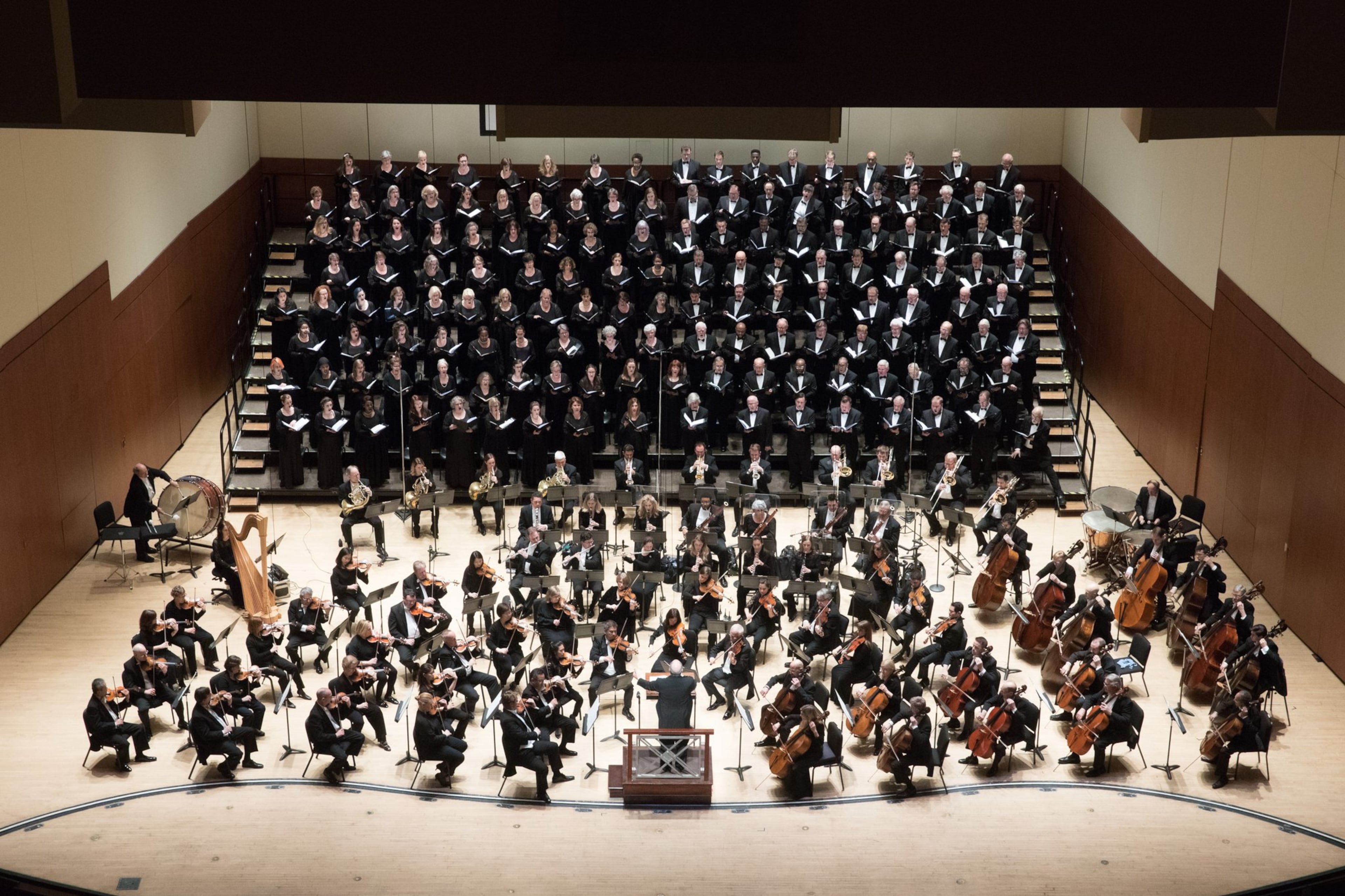For 75th season, ASO mines history, looks to future

Robert Spano was the definition of an Atlanta transplant in September 2000 when, as the new leader of the Atlanta Symphony Orchestra, he opened his first season with Concerto for Orchestra by Witold Lutoslawski. Beginning the year with a mid-20th century work set the tone for his career with the orchestra.
Twelve years before that night, Spano’s predecessor, Yoel Levi, began his ASO tenure with an equally career-defining, though entirely different piece: Mahler’s Symphony No. 1.
Both compositions will be performed anew during the Atlanta Symphony Orchestra’s 75th season, which begins Sept. 20 with guest artist Joshua Bell. Spano will revisit the Lutoslawski concerto in January 2020, and the ASO welcomes back Levi, leading the Mahler again for a one-night-only concert on March 11, 2020.
Spano’s history with the ASO and the broader legacy of the ensemble, which began as a youth orchestra in the 1940s, guided his thoughts as he helped program the coming season. The concerts include works held dear by previous music director Robert Shaw, as well as appearances by familiar guest artists Itzhak Perlman, Kelley O’Connor, Emanuel Ax and others. Spano and ASO Executive Director Jennifer Barlament also hoped the season could reflect the present state of the orchestra.

In the last decade, producing concert versions of operas in a “theater of a concert” setting has been a priority for Spano. For the closing 75th anniversary concerts in June 2020, Spano will lead Wagner’s “Tristan und Isolde” across three nights, marrying each act of the Wagner opera with works that put the opera in historical musical context.
“We wanted to celebrate things that we think of as being distinctively ASO, meaning Shaw’s legacy with the chorus, the long history, far predating me, of engagement with living composers — although certainly that’s been a big part of my time here as well — and our efforts into ‘theater of a concert,’” Spano said.
In addition to indulging his love of opera, the conductor said the “Tristan” concerts are also about the future, showing that the ASO is “committed to programming that’s diverse and interesting and enlightening.” To prime the Atlanta audience for these closing concerts, Barlament and Spano have sprinkled bits of Wagner throughout the season. Spano will lead the symphony in a Wagner prelude on the season opener, and Wagner compositions appear on three additional concerts leading up to the final evenings.

New compositions, both premieres and works that are fresh to Atlanta audiences, abound on the program. In addition to the world premiere of Richard Prior’s Symphony No. 4, an ASO commission, and a new work by Rapido Composition Contest winner Brain Nabors in November, Spano and Barlament are looking forward to introducing recent compositions by Krists Auznieks and Jessie Montgomery in January and featuring Joby Talbot’s “Ink Dark Moon” in May.
Next year also marks Beethoven’s 250th birthday, and Spano will mark the occasion with a series of Beethoven works leading up to a performance of the composer’s “Missa Solemnis” with the ASO Chorus on March 26, 2020. (The combined ensemble will bring it’s version of the Beethoven choral work to Carnegie Hall in New York on April 4.)
Next season, Spano will lead the ASO in 12 concerts, leaving numerous performances in the hands of Principal Guest Conductor Donald Runnicles – who will lead the symphony twice in the fall and return for Carl Orff’s “Carmina Burana” in the spring — Assistant Conductor Stephen Mulligan and various guests. But looking to these guest conductors for any sort of clue about the ASO’s future once Spano leaves his full-time position in 2021 may be a fool’s errand, according to Barlament.

A search committee is currently looking for Spano’s replacement, but there is no stated timeline and seemingly no pressure to rush into naming a successor. Barlament has said that everyone is a candidate, but the list of guest conductors for next season contains no clues about future leadership.
“Things take twists and turns, and you think you know from the beginning where you’re headed and somebody pops out of nowhere and surprises you,” she said. “We’re exploring many options and thinking really hard about priorities and where we want to go in the future.”
An orchestra’s 75th birthday is an occasion worth celebrating, but it also serves as a reminder that the Atlanta ensemble is a relatively young organization in terms of the most significant domestic orchestras. Barlament characterizes the ASO as “scrappy and nimble” when put into the context of the nation’s great orchestras, but that portrayal also allows the symphony to create a celebration that is all its own.
“I think what you see in our season, it’s maybe different than what you’ll see from a Los Angeles [Philharmonic] celebrating it’s 100th anniversary,” Barlament said. “It just has a different shade on how we think about our history and about our future.”
The ASO is currently in the midst of a strategic planning process that will produce guidelines for everything from how to better engage with its audiences to whether Symphony Hall gets completely rebuilt or simply undergoes a heavy face-lift in the near future. Barlament said she has entered the entire process with one question in mind, and it’s a question that will carry the ASO beyond the next music director, whomever that may be:
“How can we look at everything in a fresh way to serve the community that exists today,” she said, “not the community that existed 75 years ago when we were founded?”

